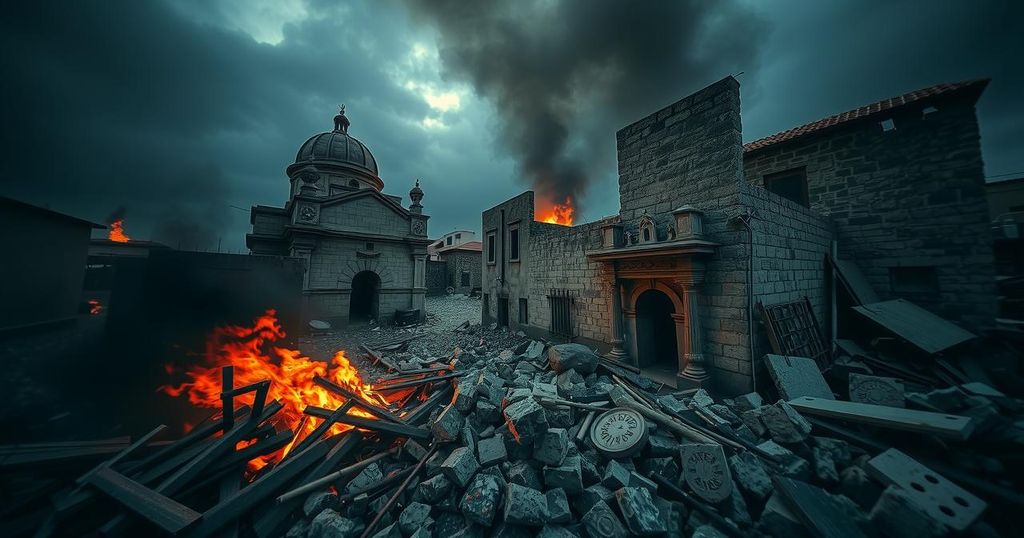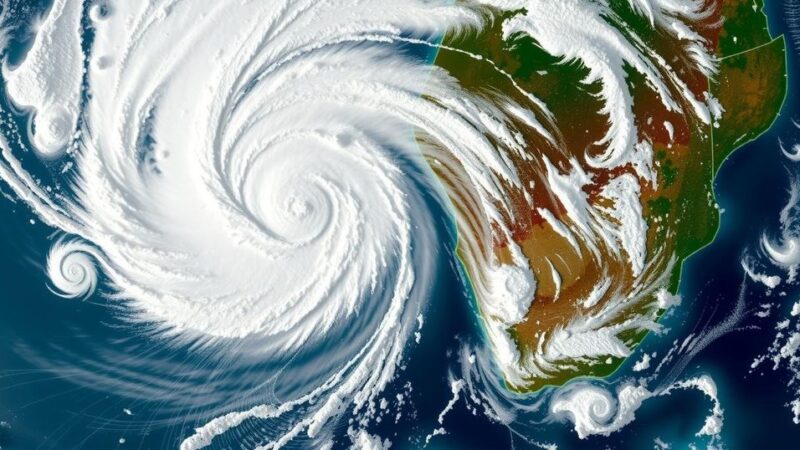The article highlights the distress experienced by Lebanese Australians due to Israel’s renewed military actions in Lebanon, which evoke memories of past traumas from the Lebanese Civil War. Community leaders and individuals express deep concern for family back home and the rise of Islamophobia in Australia as socio-political tensions escalate. The importance of solidarity and humanitarian efforts is emphasized amid protests calling for peace and support for those affected by the conflict.
The recent military assault by Israel on Lebanon has sparked intense distress within the Lebanese Australian community, particularly in Sydney and Melbourne, where numerous individuals retain familial connections to Lebanon. Many have been constantly following news updates, leading to heightened anxiety and recollection of traumatic experiences from past conflicts in Lebanon. Community leaders emphasize the pervasive impact of these events, reminiscent of the Lebanese Civil War, on Australian Lebanese individuals who have previously endured significant hardships due to civil unrest in their homeland. Israel’s history of military action in Lebanon, particularly during the Civil War and subsequent invasions, lingers vividly in the memories of those with roots in the region. Events like the Sabra and Shatila massacres and the devastation wrought during the 2006 conflict contribute to a collective trauma felt by the community as they witness current events unfold via social media and news outlets. The experiences of individuals like Ahmed, a young Australian of Lebanese descent who recently returned to Melbourne amidst rising violence, exemplify the struggles faced by many in the community. Ahmed participated in efforts to aid those displaced by violence, showcasing the resilience and solidarity of Lebanese Australians despite their personal losses. Compounding this distress is a noticeable increase in Islamophobia within Australia coinciding with the recent escalation of violence and subsequent public discourse. Reports indicate a significant rise in Islamophobic incidents in various Australian spaces, illustrating broader societal issues stemming from global events. As community representatives call for unity and understanding against such discrimination, they maintain hope for peace in Lebanon. Demonstrations advocating for both Palestinian and Lebanese rights have emerged across major cities, underlining the community’s efforts to draw attention to the ongoing violence and their support for humanitarian initiatives. While the Australian government has pledged humanitarian assistance and initiated evacuation flights, the voices of Lebanese Australians highlight the urgent need for lasting peace in Lebanon, emphasizing that civilians should not bear the brunt of geopolitical conflicts.
The article examines the emotional toll and distress experienced by Lebanese Australians in light of Israel’s renewed military actions against Lebanon. It explores how these actions resonate within the community, bringing back traumatic memories from the Lebanese Civil War and previous Israeli invasions. Through direct testimonies and accounts from community leaders, the piece discusses the impact of geopolitical turmoil on local communities and highlights resilience amid adversity. It delves into relevant historical context, contemporary societal issues such as rising Islamophobia, and the community’s outreach for peace and solidarity during times of crisis.
In conclusion, the Israeli military actions against Lebanon have profoundly affected the Lebanese Australian community, reigniting traumatic memories of past conflicts and prompting widespread concern. As the community grapples with the emotional aftermath, they continue to advocate for humanitarian relief and support for their homeland. The rise in Islamophobia during this period further complicates their reality, underscoring the necessity for a collective response grounded in empathy, unity, and awareness of cultural diversity. It is imperative that public awareness continues to foster support for marginalized communities amidst global conflicts, ensuring that civilians, particularly those in Lebanon, do not endure the brunt of ongoing warfare.
Original Source: www.aljazeera.com







